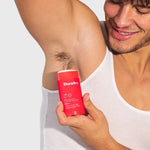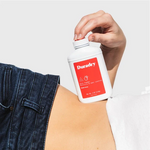Have you been diagnosed with hyperhidrosis (excessive sweating)? This condition may stem from a number of possible causes, from underlying diseases to obesity. But even after you've taken steps to get that hyperhidrosis under control, you may still experience unaccountable sweating issues. Perhaps it's time to examine what's on your plate or in your glass. Take a look at some of these dietary changes that make all the difference for your sweating issues.
Taking the Heat Off
Spicy foods such as cayenne, turmeric, and black pepper offer a wealth of health benefits. But there's no getting around the fact that they also make your body feel hot. When you feel hot, you will sweat more. Try replacing these seasonings in your kitchen with milder alternatives such as lemon juice and oregano. Better yet, start using lots of sage, an herb known to reduce excessive sweating.
While you're dialing down your spice content, take equal care with the actual temperatures of your foods and beverages. That piping-hot entree, beverage, or soup can signal your body that it needs to unload some of its own heat -- which it does by sweating. Let hot items cool off a bit, or choose cold alternatives when possible.
Reducing Your Metabolic Burden
Some foods are easier for the body to digest than others. Heavy, highly processed, low-fiber foods are among the toughest challenges for your metabolic system. When your metabolism has to go work harder, it generates more calories in the form of thermal energy, a.k.a. body heat.
As it loses its fight to keep up, you pack on the pounds and sweat even more. Refined grains, sugary foods, French fries, frozen foods, and non-organic beef are all known to make the metabolism sluggish.
Choose fresh fruits, organic meats, and steamed or raw vegetables over fatty foods and vegetables cooked in fat. The veggies will not only be naturally low in substances that tax your metabolism, but they'll also provide plenty of fiber to help your digestive system do its work.
The Thermogenic Factor
Some foods boost your metabolism instead of burdening it. Thermogenic substances raise your metabolism and make you burn more energy. This is great for weight loss, but not great for a sweating problem. Caffeinated foods and drinks such as coffee, tea, and chocolate can crank your sweat glands into high gear.
Other thermogenic foods include red meat, fish, chicken breast, starches, eggs, and fried foods. Swap these products out for substitutes such as karob, decaffeinated coffee/tea, and dairy or vegetable proteins. These simple steps can help keep the "meat sweats" at bay.
Skipping the Salt
Can too much salt give you the sweats? There's no formal evidence to confirm this conclusion, but there are people who swear that this happens to them. Sweating is one of the body's principal methods of getting rid of excess sodium in the bloodstream, so if you've overloaded on salt, you may find yourself sweating it out.
Since most Americans get too much sodium anyway, you can safely put the salt shaker aside. Lemon juice and other herbs can provide that extra flavor without prompting extra perspiration.
Try these dietary suggestions and see whether your hyperhidrosis becomes easier to manage. With any luck, you'll find that it's no sweat to improve your condition through smarter eating!



